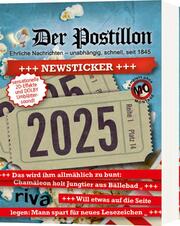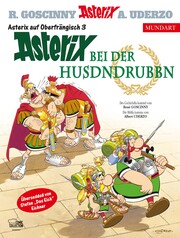Beschreibung
The book offers a critical evaluation of Qatars path from oil- and gas-based industries to a knowledge-based economy. This book gives basic information about the region and the country, including the geographic and demographic data, the culture, the politics and the economy, the health care conditions and the education system. It introduces the concepts ofknowledge society andknowledge-based development and adds factual details about Qatar by interpreting indicators of the development status. Subsequently, the research methods that underlie the study are described, which offers information on the eGovernment study analyzing the government-citizen relationship, higher education institutions and systems, its students and the students way into the labor market. This book has an audience with economists, sociologists, political scientists, geographers, information scientists and other researchers on the knowledge society, but also all researchers and practitioners interested in the Arab Oil States and their future.
Autorenportrait
Wolfgang G. Stock is full professor and head of the Information Science Dept. of Heinrich Heine University Düsseldorf, Germany. His research areas include studies on smart cities, social network services and information behavior. He is author of about 300 articles and books, thereof about 30 are on prototypical cities of the emerging knowledge society.
Kaja J. Fietkiewicz is research associate at Heinrich Heine University Düsseldorf. She is working on Social Media and on Smart Cities, especially in Japan.
Julia Barth and Julia Gremm have been assistant lecturers for Smart City Research at Heinrich Heine University Düsseldorf. They conducted field researches on cities in the Gulf Region (especially, in Kuwait, Qatar, U.A.E. and Oman) and published articles on the Arabian Way into knowledge society.
Inhalt
Part 1: Context.- Chapter 1. Informational Cities in the GCC States.- Chapter 2. Qatar in a Nutshell.- Part 2: Concept.- Chapter 3. Knowledge Economy and Knowledge-Based Development.- Chapter 4. Methods.- Part 3: Connection.- Chapter 5. Diversification of Knowledge-Based Industries and Foreign Investment.- Chapter 6. Creativity and the Knowledge Society.- Chapter 7. E-Government.- Chapter 8. Knowledge-Based Development.- Chapter 9. Universities and other Institutions of Higher Education.- Chapter 10. Students and Graduates.- Chapter 11. Transition of Graduates into the Labor Market.- Chapter 12. Libraries, Science Parks and Research Funding.- Part 4: Conclusion.- Chapter 13. Strengths, Weaknesses, Opportunities and Threats of Qatars Way into the Knowledge Society.- Index.
Informationen zu E-Books
„E-Book“ steht für digitales Buch. Um diese Art von Büchern lesen zu können wird entweder eine spezielle Software für Computer, Tablets und Smartphones oder ein E-Book Reader benötigt. Da viele verschiedene Formate (Dateien) für E-Books existieren, gilt es dabei, einiges zu beachten.
Von uns werden digitale Bücher in drei Formaten ausgeliefert. Die Formate sind EPUB mit DRM (Digital Rights Management), EPUB ohne DRM und PDF. Bei den Formaten PDF und EPUB ohne DRM müssen Sie lediglich prüfen, ob Ihr E-Book Reader kompatibel ist. Wenn ein Format mit DRM genutzt wird, besteht zusätzlich die Notwendigkeit, dass Sie einen kostenlosen Adobe® Digital Editions Account besitzen. Wenn Sie ein E-Book, das Adobe® Digital Editions benötigt herunterladen, erhalten Sie eine ASCM-Datei, die zu Digital Editions hinzugefügt und mit Ihrem Account verknüpft werden muss. Einige E-Book Reader (zum Beispiel PocketBook Touch) unterstützen auch das direkte Eingeben der Login-Daten des Adobe Accounts – somit können diese ASCM-Dateien direkt auf das betreffende Gerät kopiert werden.
Da E-Books nur für eine begrenzte Zeit – in der Regel 6 Monate – herunterladbar sind, sollten Sie stets eine Sicherheitskopie auf einem Dauerspeicher (Festplatte, USB-Stick oder CD) vorsehen. Auch ist die Menge der Downloads auf maximal 5 begrenzt.
















































